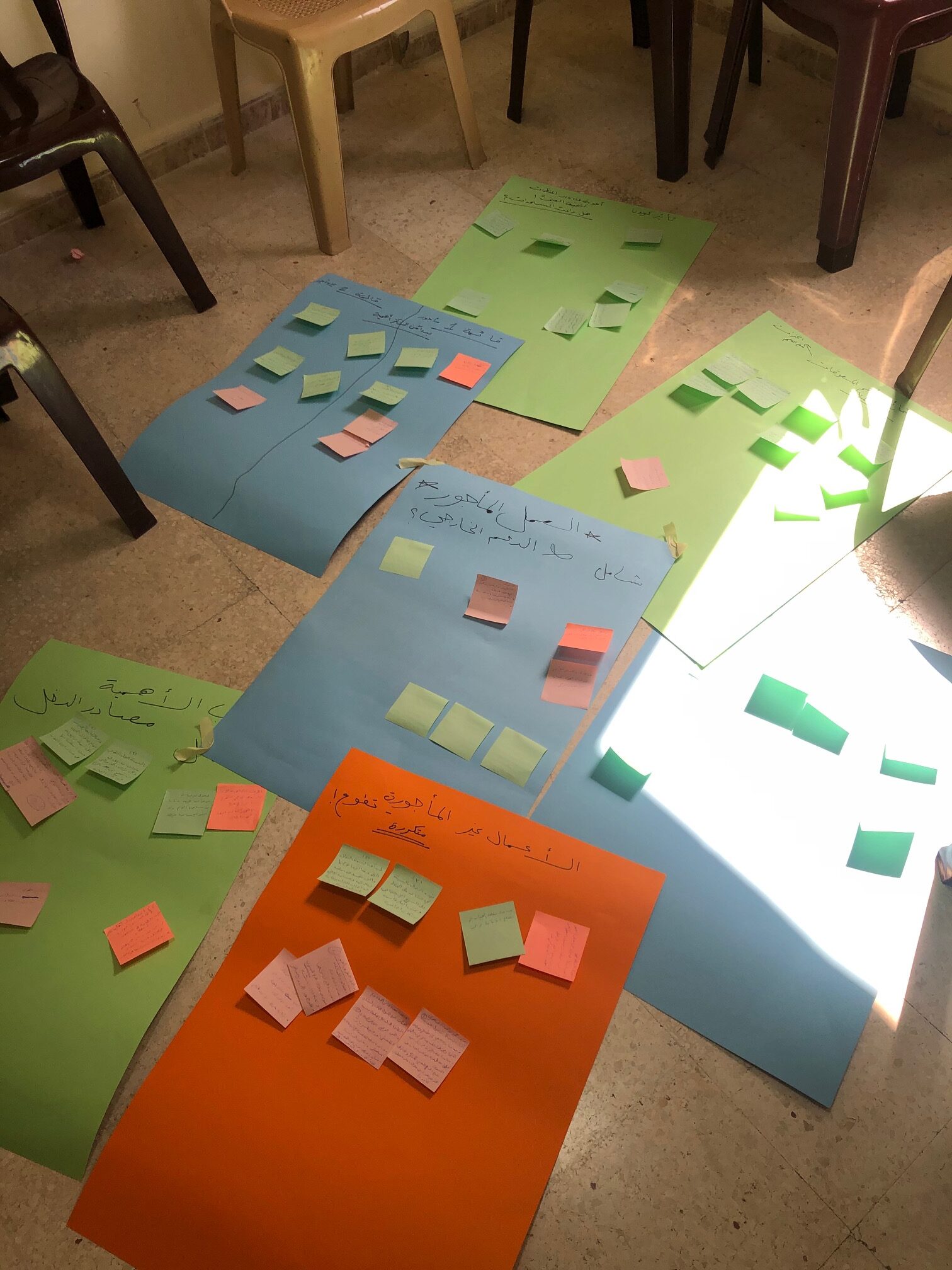Forced displacement often leads to disruption in social networks and support systems. It creates additional challenges for women in particular, as they are forced to leave behind their homes and communities, and take over new responsibilities in unfamiliar and often menacing contexts. This blog post addresses unpaid care work, paid work and the power dynamics within households in displacement-affected communities in three different locations in Lebanon: Bekaa, Nabaa and Tripoli. The content of this article is based on 131 interviews conducted by the Protracted Displacement Economies partners Basmeh & Zeitooneh and Sawa for Development and Aid.
According to the United Nations Refugee Agency, 52% of the 814,7150 registered Syrian refugees living in Lebanon are women. In a context of displacement, and often without the support of a partner or other family members, women are expected to take on the primary caregiving role, along with being responsible for a wide range of domestic chores. Women’s daily activities include preparing and serving meals, cleaning, doing laundry, managing medications, providing emotional support, bathing and dressing others, and child and elder care. Unpaid care work becomes even more demanding and stressful for those women who, on top of the additional responsibilities and chores within the household, need to take on part-time or full-time paid jobs.
What happens when refugee women take on paid jobs?
Unpaid care work in displaced communities in Lebanon is clearly gendered as women across the three sites are the primary caregivers. This includes young women and girls taking care of domestic chores and looking after younger siblings, and older women overseeing their grandchildren and leading the household. Interviews show that, as women start working in part-time or full-time paid jobs, they either continue to undertake unpaid care work or transfer this work to other women within the household. In Nabaa, the workload and responsibility of care tends to be transferred to young women. In Tripoli, older women claimed to take on these responsibilities for their daughters. However, in Bekaa, women reported working in paid jobs and looking after their families simultaneously. This re-distribution of care among women is problematic as it perpetuates the gendered division of labour and reinforces gender norms and expectations, while men are expected to focus on paid work outside the home.
Interviews also showed that women who work in part-time jobs are often overburdened as they are still responsible for significant amounts of unpaid care work and have less time and energy for other activities. Moreover, as there is an expectation for women to take on these diverse responsibilities, they tend to prefer flexible jobs that are often low paid and labour-intensive. A woman in Bekaa shared: “I work in the field. I pick up vegetables. I work at night and in the early morning before my kids wake up, I go with my neighbours to work.” The concerning aspect of this dynamic is that the unequal division of unpaid care work emphasises the vulnerability of women who have an irregular immigration status, economic difficulties and/or disabilities. In comparison with men, these women may face even more barriers to access support services and may have fewer resources to rely on when they are providing care.
How are power dynamics transformed within the household?
Interviews also revealed a pattern in which women perceive their paid labour being undervalued and unrecognised; their work is often understood as mere ‘assistance’ instead of a legitimate source of income. This perspective enforces gender-based inequality and fails to recognise the valuable economic contribution of Syrian women to the household. The unequal power dynamic within households has significant implications on women’s economic empowerment. Tripoli presents a compelling case for analysis, given the high number of women who face the challenge of balancing full-time jobs with their responsibilities as caregivers. They particularly expressed feelings of guilt for not being more involved in their children’s upbringing. This raises a question worthy of further research: how does this impact these women’s relationships with their families and partners?
The patterns and dynamics of unpaid care work and paid work in contexts of displacement, as they emerged from the interviews with Syrian refugee women, highlight the importance of identifying how women allocate their time on a day-to-day basis and on how power relationships within households are impacted. Having access to paid jobs may not necessarily result in economic empowerment. Hence, it is necessary to shift the power dynamics within households to give women greater control over resources and decision-making.
Recognising the value of care work remains crucial in protracted displacement contexts. By providing additional support in the form of healthcare and education, the impact of displacement on carers can be alleviated. This can include alternative care arrangements such as redistributing care with a partner or agreeing on community-based care services. Women’s experiences in protracted displacement settings reveal accentuated dynamics of gender inequality that determine their participation in the economy – their stories must be heard and be visible to their families, the state, the market and the non-profit sector.
Gabriela Ramírez Rivas is Qualitative Data Analyst (NVIVO) for Protracted Displacement Economies (PDE). PDE is a project funded by UK Research and Innovation through the Global Challenges Research Fund (grant reference number ES/T004509/1).
